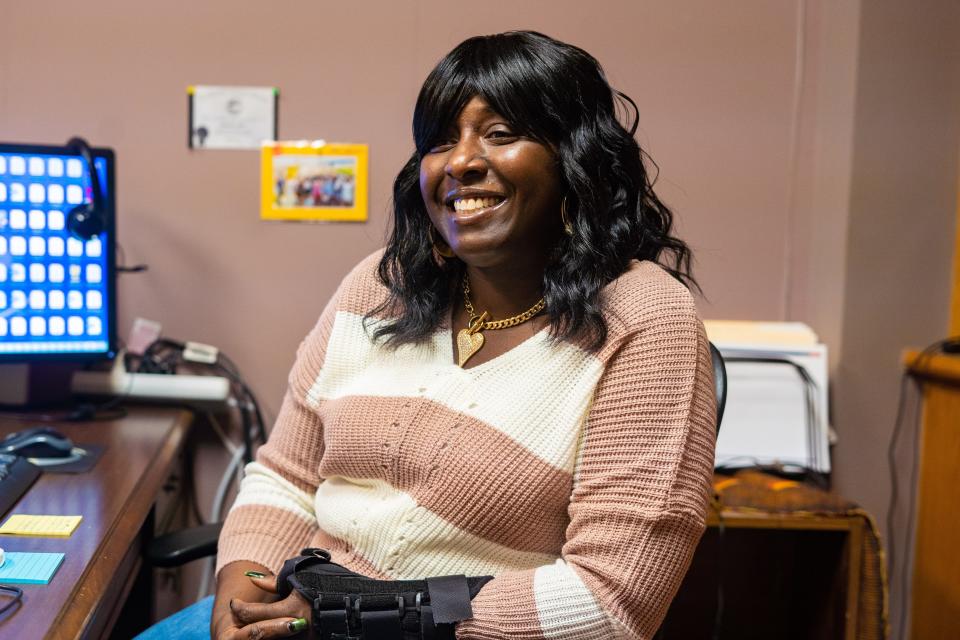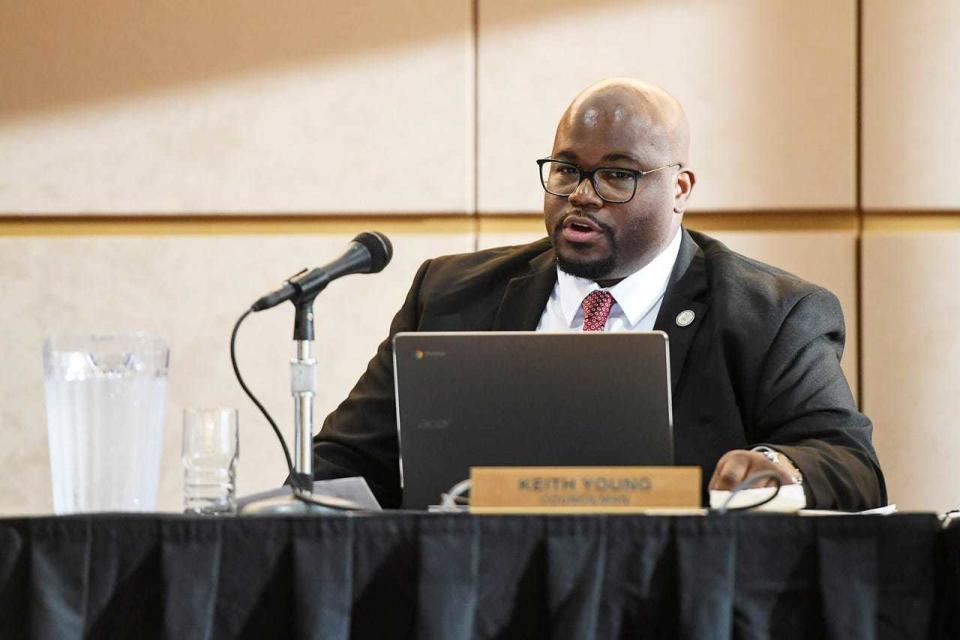Historic reparations commission slated for final recommendations in June. Then what?
ASHEVILLE - After two years of meetings, barring further extension, the city and Buncombe County's reparations commission will close out its report of final recommendations in June.
But then what?
Commission members ask: How will local municipalities be held to account? A few years of work barely scratches the surface of hundreds of years of racial inequity, others say, so how can they ensure the efforts continue?
At its April 8 meeting, as it considers a "global" accountability recommendation, the reparations commission heard some options for the way forward from City Attorney Brad Branham, who considered the legality around next steps.
The new proposal, which will be discussed further at the April 22 meeting, calls for the city and county to "permanently fund a newly formed, independent, Reparations Accountability Nonprofit Corporation," with members appointed by the Community Reparations Commission and charged with oversight of implementation of the commission's outcomes.

Branham's suggestions were twofold:
The commission could support the independent creation of a nonprofit to provide oversight of the recommendations, and manage additional fundraising and reparations efforts;
Or it could develop a community advisory board — either under the city's public "boards and commissions" structure or privately — for the city and county staff to share progress reports on the implementation of recommendations.
The historic 25-member board is tasked with making short-, medium- and long-term recommendations to repair damage caused by public and private systemic racism. A resolution in support of reparations was first passed by Asheville City Council July 14, 2020. Asheville and Buncombe County are among the first locales in the country to undertake such an effort.
A final submission of recommendations is slated for June, despite calls from some commission members asking for more time. An eight-month extension to their two-year timeline was proposed in October 2023, which would have prolonged the process until December 2024. Both city and county agreed only to a June extension.
Next steps
The process has faced repeated delays; the departure and replacement of its project manager, twice; staff turnover; an extended timeline; and the resignation and reappointment of several commission members.
Commission members, many of them subject matter experts, community leaders and neighborhood representatives, were asked to forge a path through largely uncharted territory.
Once recommendations are finalized, according to an April 8 presentation from Vernisha Crawford, the commission's newest facilitator, city and county staff will be responsible for the implementation of the approved recommendations "within their control and authority."
All expenditures must receive the appropriate approvals from city and county, and they will retain full control over budgets.
If a third party is contracted by the municipalities to provide services related to monitoring accountability, theselection would be done through a competitive procurement process conducted by the localgovernments, as mandated by state law, Branham said.
If the city or county only collaborated with the entity, without funding it, then competitive bidding "may be unnecessary." A third party, whether as a contractor or partner, may provide analysis and recommendations to the city and county, the presentation said, but the local governments retain final decision making authority.

The topic of procurement gave some commission members pause, like Vice Chair Dewana Little, who pointed to a recent equity audit of the city and county, conducted at the reparations commission's recommendation, that called for development of a "procurement industry and utilization dashboard" to ensure equitable contracting practices.
“If they have to go through that competitive procurement process, which has not served Black people in the past, how do we expect it to serve them now?” Little asked.
Similarly, commission member Keith Young, a former city council member and author of the 2020 reparations resolution, pointed to the city's 2018 disparity study, which happened during his tenure and showed that of $118 million paid to businesses between 2012-17, 87.2%, or nearly $106 million, went to firms owned by white men.
Referencing a more recent 2023 study, as well, Young said, "five years later, it's still inequitable."
“If the city is not putting money into their own inclusion office and expanding it, how do we expect that process to ever become equitable, how do we expect that process to be equitable as it pertains to Black people and reparations?” Young said.

In response, Noreal Armstrong, the county's chief equity and human rights officer, said there is ongoing work to "help strengthen our equity."
“Know that there are pieces in place at the county, and I’m sure at the city as well, through our equity offices, where we are trying to have strides and movement forward in those areas so that processes are getting better, policies are getting better, so that when an RFP process happens, it is more equitable,” Armstrong said.
An implementation plan for the city's 2023 disparity study will be presented to the Equity and Engagement Committee in May, said Sala Menaya-Merritt, the city's equity and inclusion director.
Get involved:
The Community Reparations Commission will host a Jamboree from 10 a.m.- 8 p.m., April 27 in Pack Square Park.
More: Asheville Reparations: Members hear final 'equity audit:' 108 new recommendations
More: New Asheville reparations project launches to do what city, county 'might not be able to'
More: Asheville Black and women-owned contractors lack access to city projects some say
Sarah Honosky is the city government reporter for the Asheville Citizen Times, part of the USA TODAY Network. News Tips? Email shonosky@citizentimes.com or message on Twitter at @slhonosky. Please support local, daily journalism with a subscription to the Citizen Times.
This article originally appeared on Asheville Citizen Times: Reparations board considers creating a nonprofit to further its work

